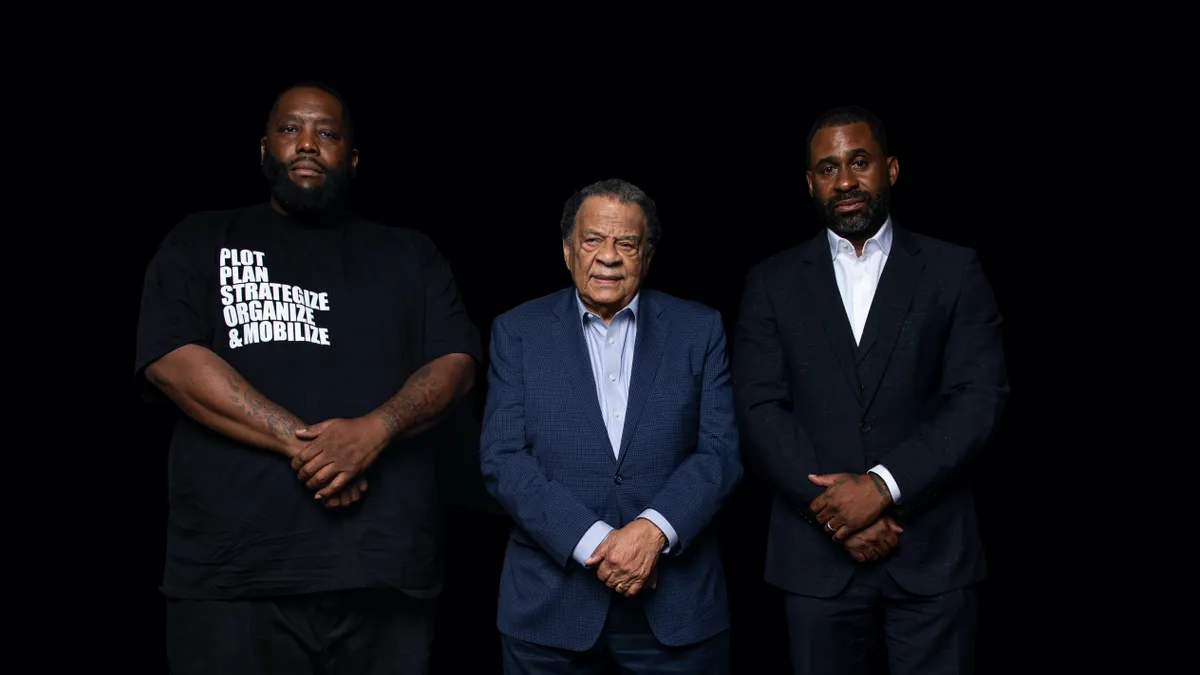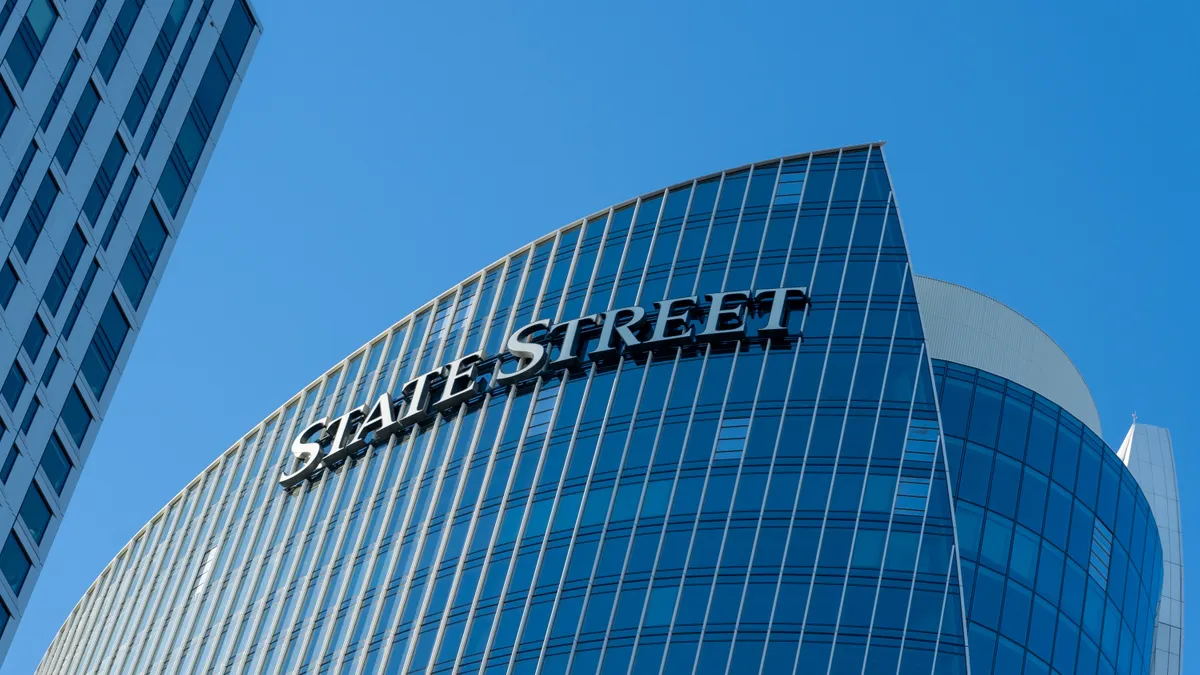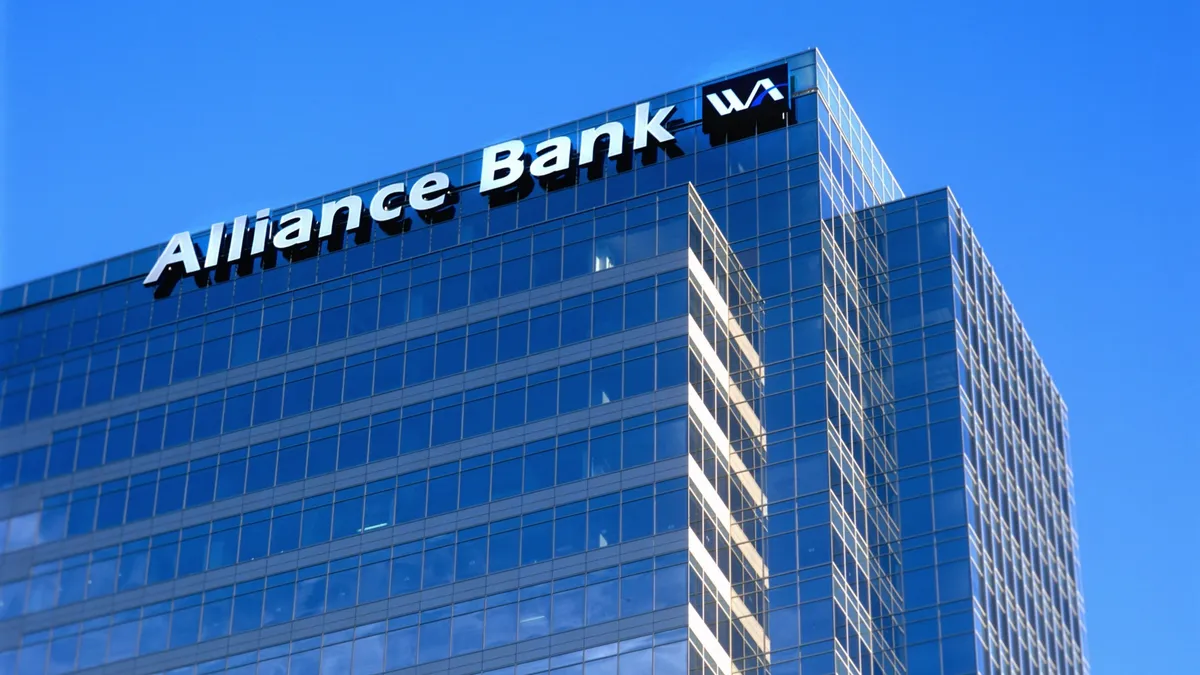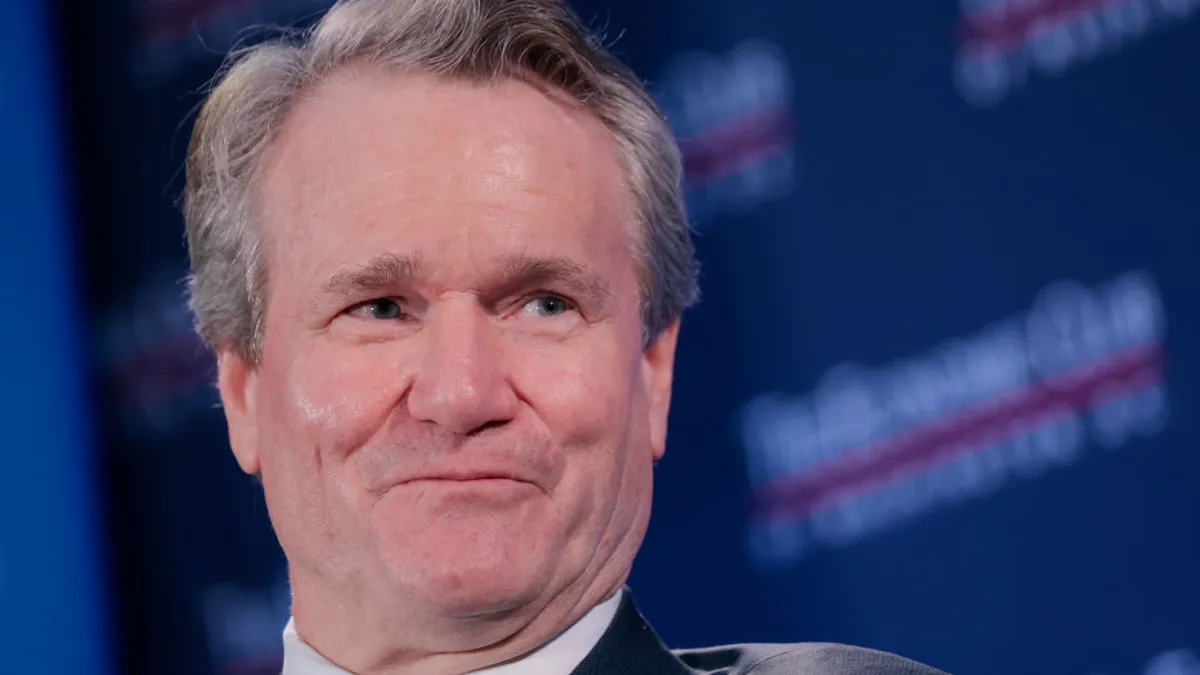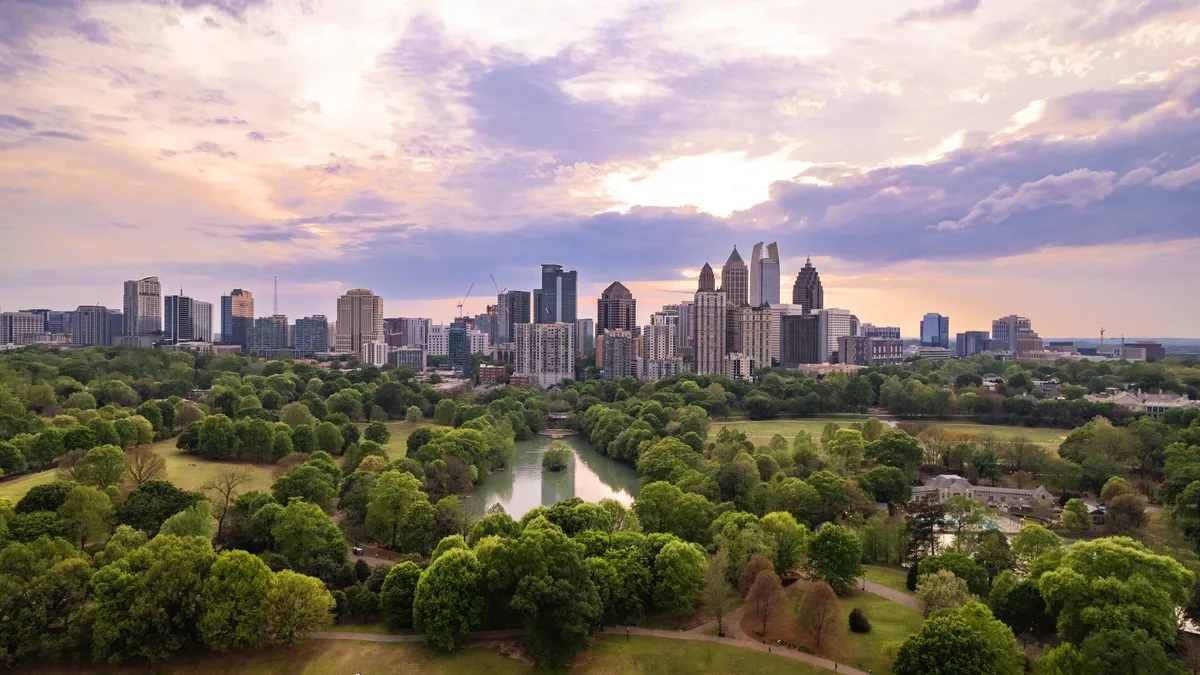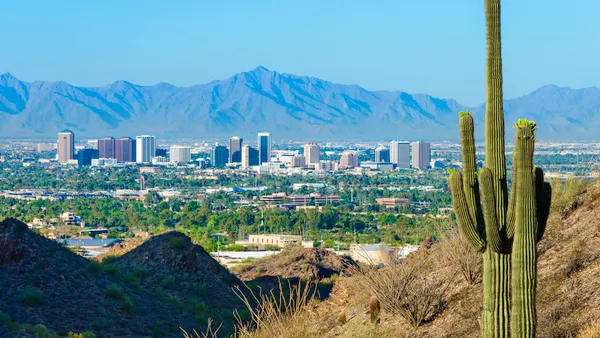Greenwood, a challenger bank aimed at serving Black and Latinx communities, raised $40 million in Series A funding from some of nation’s largest banks, the Atlanta-based fintech announced Thursday.
Led by Truist Ventures, the digital bank’s funding round includes investments from JPMorgan Chase, Bank of America, Wells Fargo and PNC, in addition to payments giants Mastercard and Visa. A sixth major bank has chosen to remain unnamed, a Greenwood spokesperson said.
Other investors include technology provider FIS, Hispanic-owned Banco Popular and venture capital firms SoftBank, TTV Capital, Lightspeed Venture Partners and Quality Ventures. Alvin Kamara, a running back for the NFL's New Orleans Saints, also joined the startup as an investor.
"It's almost heartstopping," Greenwood co-founder Ryan Glover said of the lineup of investors. "It's great to have those banks and financial institutions and entertainment companies, because I believe it takes collaboration and community to solve this multi-generational problem."
Greenwood, which raised $3 million in seed funding from private investors in October, says its mission is to create nonpredatory lending products for recirculation of capital in Black and Latinx communities.
The startup, which Glover said was valued at $180 million ahead of the Series A, plans to launch this summer with spending and savings accounts. Other features will include virtual debit cards, peer-to-peer transfers, mobile check deposits and free ATM usage in more than 30,000 locations.
The neobank plans to launch lending, credit and investment programs in 2022.
"The Black and Latinx community, disproportionately, has not had access to capital to build wealth like in other communities," said Glover, an Atlanta-based entrepreneur and founder of Bounce TV. "We will change that narrative. And we're blessed to be able to change it with some of the best and most successful banking institutions in the country."
How it started
It wasn’t long after Glover and his co-founders, civil rights leader Andrew Young and rapper and activist Michael "Killer Mike" Render, launched Greenwood that the venture caught the attention of Truist, the $509 billion-asset bank formed by the merger of BB&T and SunTrust.
"When they announced that they were doing Greenwood, we were so excited that there was an opportunity to bring expertise at Truist and not just capital to a company that was so aligned from a mission perspective," said the head of Truist Ventures, Vanessa Vreeland, whose bank reached out to Greenwood in October. "We moved really quickly to give them a term sheet so they would choose us as the lead."
The number of major banks that have followed Truist as investors is a testament to the challenger bank’s vision and ability to serve its target market, Vreeland said.
"The fact that other banks have joined Truist in supporting the investment demonstrates how legitimate the opportunity is and how serious Greenwood is about being able to speak to this demographic," she said.
As Greenwood prepares to launch into the challenger bank space, it will join a growing market of digital players such as Chime and Varo Bank, which are competing with traditional banks for consumer accounts. But Vreeland said Truist doesn’t view Greenwood as a competitor.
"They're not trying to be a bank, and they don’t have an aspiration to displace banking," she said. "We talked about this a lot, 'Are we investing in a competitor?' And from our perspective, the pot’s big enough for us all to play in. Let's figure out how to meet the demographic where they are, so that we can start to close this racial wealth gap that shouldn't exist."
Vreeland said Truist can learn from the startup from a marketing and media perspective.
Greenwood has attracted investment from "Grey's Anatomy" star Jesse Williams, who has produced and starred in a series of videos promoting the startup.
"We’re not great at media, we're not great at content, so if we can learn how to touch our audience and our clients in the same way that Greenwood has, then we feel like we've won in this relationship," she said.
As Greenwood prepares to go live, Vreeland said Truist plans to continue its relationship with the startup, both in terms of providing more capital and in an advisory role.
"There is talk of putting some of our experts onto an advisory group that Greenwood can tap into as they're building out products," she said. "We will certainly be around, should they require additional capital for a next raise. We like to invest and continue to support our companies through multiple iterations and fundraising."
Supporting MDIs
In addition to the funding news, Greenwood announced its Minority Depository Institution (MDI) program Thursday.
Through a co-branded debit and spending program, Glover said Greenwood will share interchange fees with MDI partners. Greenwood is also launching a loan program where it will serve as the customer acquisition engine for MDIs by directing Greenwood customers to the institution’s consumer loan products.
Glover said Greenwood aims to partner with MDIs and traditional banks in an effort to end racial wealth disparity.
"It’s a multi-generational problem that requires all hands on deck," Glover said. "I think that's the only way we're ever going to be able to put a real dent in the racial wealth gap that we're trying to close."
Greenwood has not yet announced its primary partner banks — essentially, the institutions that will hold and insure customer deposits — but Glover said it plans to partner with one Federal Deposit Insurance Corp.-insured MDI and an FDIC-insured bank "with a strong track record of digital performance."
Greenwood said it amassed 500,000 signups in the first 100 days since it opened its waitlist in October, and Glover said the platform is on track to hit more than 600,000 active accounts by the end of 2021.
Glover said he hopes Greenwood’s journey encourages more challengers with similar missions to enter the space.
"I hope that Greenwood, and the work that we're doing, inspires others to create these affinity brands that are laser-focused on nurturing a certain community," he said. "I think that there needs to be more Greenwoods that are servicing the African-American and Latinx community. This is a huge problem that I don't think we can solve on our own."



